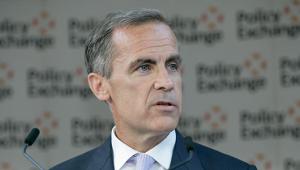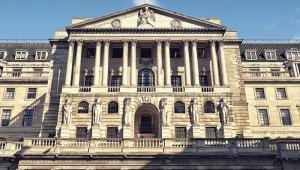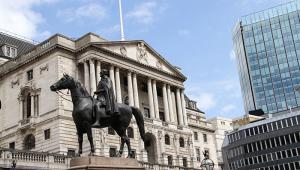
The question has to be asked, is the Bank of England (BoE) on the verge of making a policy error?
At its last meeting the Monetary Policy Committee (MPC) voted 7-2 in favour of maintaining until its scheduled conclusion to the current programme of Quantative Easing (QE).
However, despite the parallel 9-0 vote to maintain interest rates at the historic low of 0.1%, the rhetoric of many MPC members has shifted to a remarkably hawkish tone.
The minutes of the last MPC meeting showed us that the majority agree that a rise in interest rates is needed.
Their unspoken motivation is perhaps, in our view, to escape emergency interest rate levels and give themselves the ammunition required to fight the next catastrophe.
If the economy could be likened to a car and the MPC the driver, you could perhaps make the analogy that low interest rates and QE are the accelerator; stopping QE is easing some gentle pressure on the foot brake; and interest rate increases are hard braking…or even pulling the handbrake.
It looks to many at Arlingclose like the car is speeding towards a corner, accelerating under continued QE, but with a driver increasingly intent on applying the brakes in the bend (for those who do not drive it is rarely advisable to do your braking in the bend – the consequences could be that you skid or roll the car.)
We would much rather see the economy remain on track!
At Arlingclose we have the delicate task of forecasting interest rates, and occasionally we get to a junction where there is an upcoming bend to the right but a gentle slip road ahead.
This an analogy for the difference between forecasting what we believe the bank WILL do, and what they SHOULD do.
It’s fair to say that we are not always the biggest optimists in the world, despite some recent positives for the UK economy such as higher savings and more room in consumer credit than we have had for a while, lower unemployment than previously thought and high vacancy rates.
We still struggle with the negatives such as the BAD (cost-push) inflation, hopefully transitory, that we face as a result of rising fuel and energy costs, sucking money away from discretionary consumption which could eventually detract from growth.
Consumer confidence, that had been on the rise, is beginning to wane.
Some of the lowest earners, those with the highest propensity to spend, are on the verge of a £90pm cut in their budgets as Universal Credit moves to pre-pandemic levels. There are of course many other factors.
Loud voices in the media complain of an impending wage-price spiral that will bring broad inflationary pressures, yet we believe these are relatively isolated to a few sectors.
Certainly, anecdotal reports from colleagues, clients and friends of ours don’t report general real pay inflation.
We believe that the current spike in inflation will come and will pass, and the economy will return to its relatively sluggish pre pandemic growth rates.
Unfortunately, there will be no productivity miracle, but there will be a large workforce and low unemployment.
If therefore we were setting interest rates, we would allow QE to end, allow the car to slow, as this change represents easing the foot gently off the accelerator, take the slip road rather than making the policy error of hitting the brakes in the upcoming bend.
Coming off the carriageway, we believe, may simply sow the seeds for the next domestic economic slowdown, ultimately leading to even lower short-term rates than before.





















